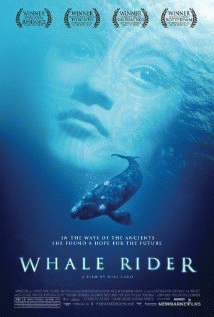Today our world is in need of good leaders, people who will take the part of the people over the powerful, leaders who know how to spark the enthusiasm and creativity of everyone to help create a new world of peaceful coexistence and good stewardship of the Earth. The world especially needs female leaders who are not molded by the patriarchy. We do not need female leaders who stand for the old patriarchal vision of hierarchical power, domination and greed, but rather women who know how to access their own feminine wisdom and who lead from the heart.
The archetypal Feminine Spirit symbolizes "the origin of life; all phases of cosmic life, uniting all the elements, both the celestial and chthonic; the Queen of Heaven, Mother of God, opener of the way; the keeper of the keys of fertility and the gates of birth, death, and rebirth. As the Moon Goddess she is perpetual renewal, the measure of time, the weaver of fate. As Queen of Heaven, she is archetypal wholeness, the mother of all wisdom, self-mastery and redemption through illumination and transformation." (J.C. Cooper, Encyclopedia of Symbols, pp. 108-109.) These are certainly qualities we need to nurture if we're going to transform our society. It is always the Goddess who presides over birth, death and rebirth. When we have women leaders who remember their feminine gifts, I believe wisdom and life will blossom in the cultural deserts of our modern world. Very much like what happens at the end of our story.
The mythological background of Whale Rider is important to the story, because our "creation stories' help us understand our place in the universe. On the east coast of New Zealand, the Whangara people believe their presence there dates back a thousand years or more to a single ancestor, Paikea, who escaped death when his canoe capsized by riding to shore on the back of a whale. From then on, Whangara chiefs, always the first-born, always male, have been considered Paikea's direct descendants.
Whale Rider begins with scenes of a hard birth and the death of the mother of twins, a boy and a girl, and the death of the baby boy. The patriarch of the family, who is tribal chief, has been waiting for the birth of this young boy, believing he will be the long-awaited new leader of the tribe. Porourangi, the twins' father, will not bend to his father's wish that he become tribal leader, and he leaves his baby girl, whom he defiantly names Paikea, to be raised by her grandparents. While her grandfather, Koro, mourns the loss of the boy child, Paikea is immediately loved and cared for by her grandmother, Nanny Flowers. As the years go by, even Koro learns to love his intelligent, curious and loving granddaughter.
Years later, twelve-year old Pai is caught between her love for her increasingly bitter grandfather and her love of and heart-felt link to her ancient traditions. Koro is troubled because he needs to train a new leader for the tribe. He is fiercely dedicated to the old ways, even as the tribe itself flounders in modern misery. Neither of Koro's sons were willing or able to take on the mantle of leadership, and this makes Koro even more rigid in his belief that he has to find a boy to take his place.
Meanwhile, Pai feels her connection to the whales and is so certain of her calling that she defies her grandfather and secretly sets out to learn the ancient lore of the tribal leaders, which her grandfather believes is reserved only for males. When she is banished from the lessons her grandfather sets up for the boys of the tribe, she secretly listens in and learns. She gets her uncle to teach her how to use a traditional Maori weapon and even defeats the young boy who is beginning to stand out as a leader. When Koro finds Pai fighting him, he sends her home in disgrace. He feels as if she is the cause of all the trouble the tribe is having, never once looking at himself and the kind of leader he is.
Koro represents the Senex, the old patriarchal man who can become so rigid in his thinking that he never allows anything new to flourish. This type of attitude causes people to rebel against the old ways instead of honoring them, because instead of living those ways with feeling and depth, the Senex uses rules and discipline to make people obey him. We see this happening in our political system. One side wants to go back to "the good old days' and sees anything new as dangerous to the system. And of course it is dangerous, mainly because the system doesn't work anymore and has to be replaced.
The sad part is that Koro really believes he is doing the right thing. But he cannot see that his inflexibility concerning the old ways is exactly what is killing the tribe. There is no life in the way he hopes to train the young men. While their fathers are proud that their sons have been selected for this honor, they themselves do not honor the system. They hang out like they're teenagers, riding around like gang members or lazing away the day. They are not men, so they cannot provide the example their boys need to grow into men. And Koro's rigidity does not serve them either.
There is no feeling life attached to the old system. This is what happens when an archetype becomes a stereotype. Archetypal energy is eternal, but its forms need renewing in each new age. There is NO LIFE in the old ways for this tribe. Except for Pai, who loves the stories and believes in them. The men take no pride in their heritage and it shows. And while the women support the old ways, they too are hampered by the deaden energy of the old system. Life has become a wasteland. Isn't that what has happened to our society?
To continue reading about Whale Rider and dreams that exemplify the path of the female leader, please go to:
The Whale Rider < http://thebardsgrove.blogspot.com/>;






